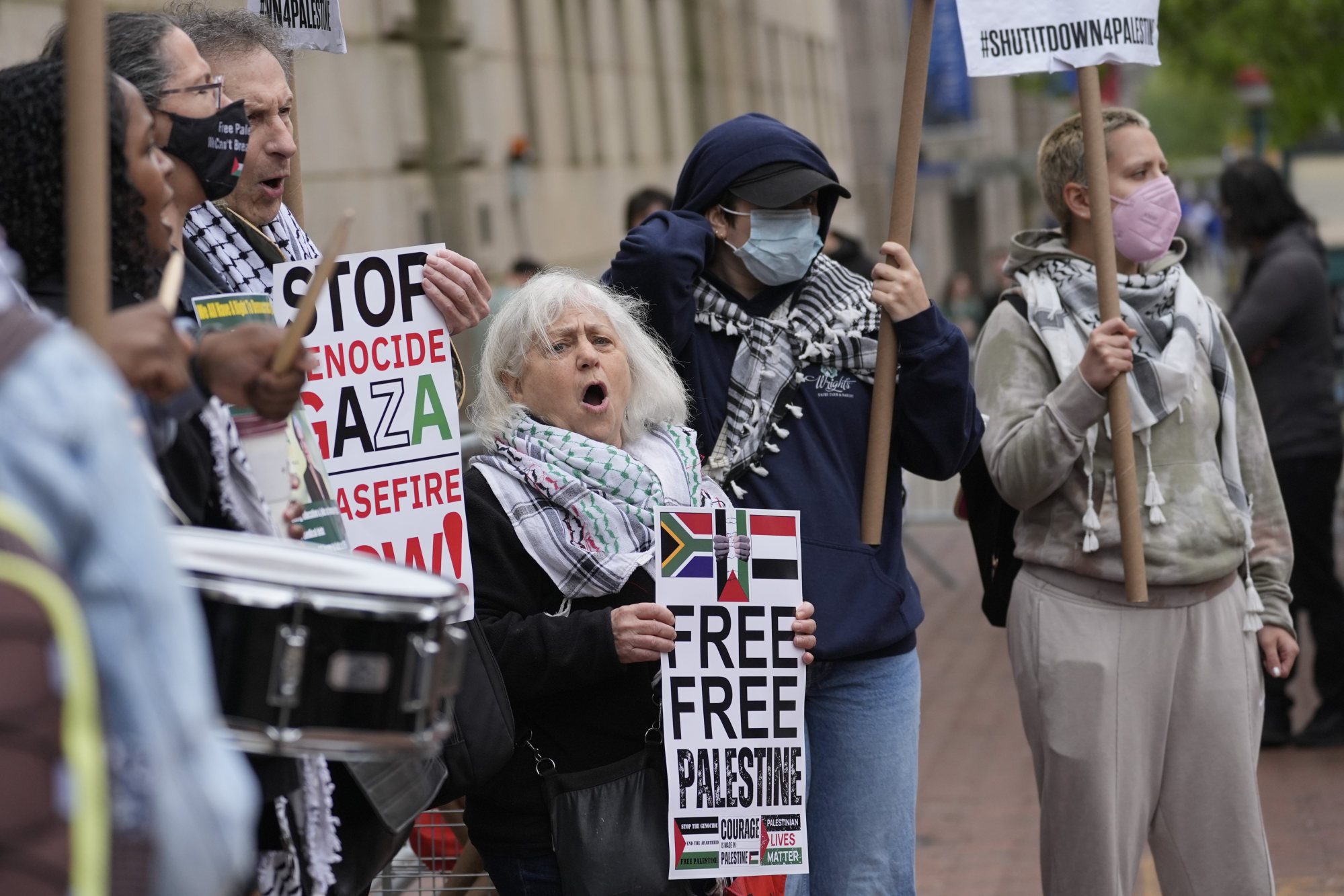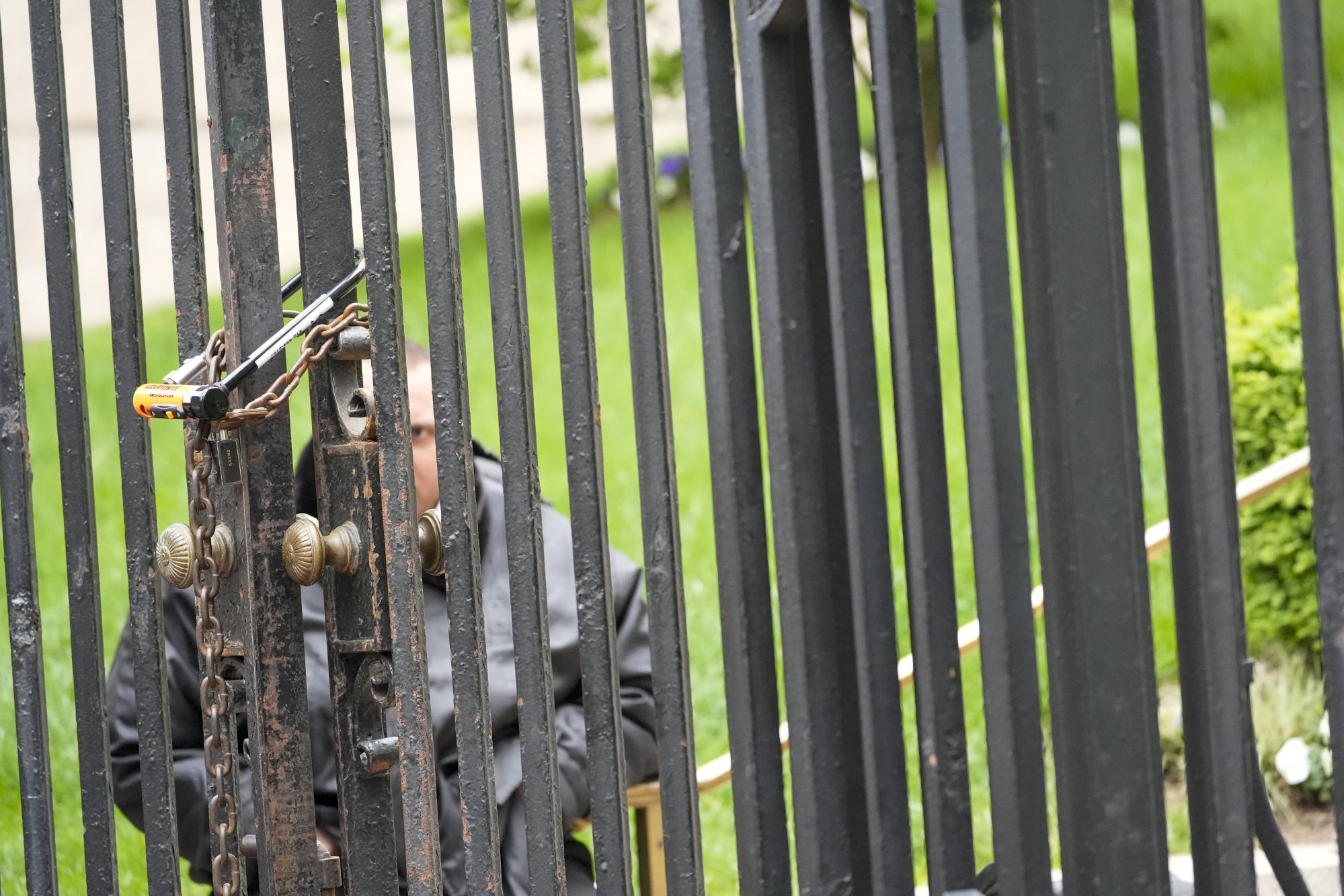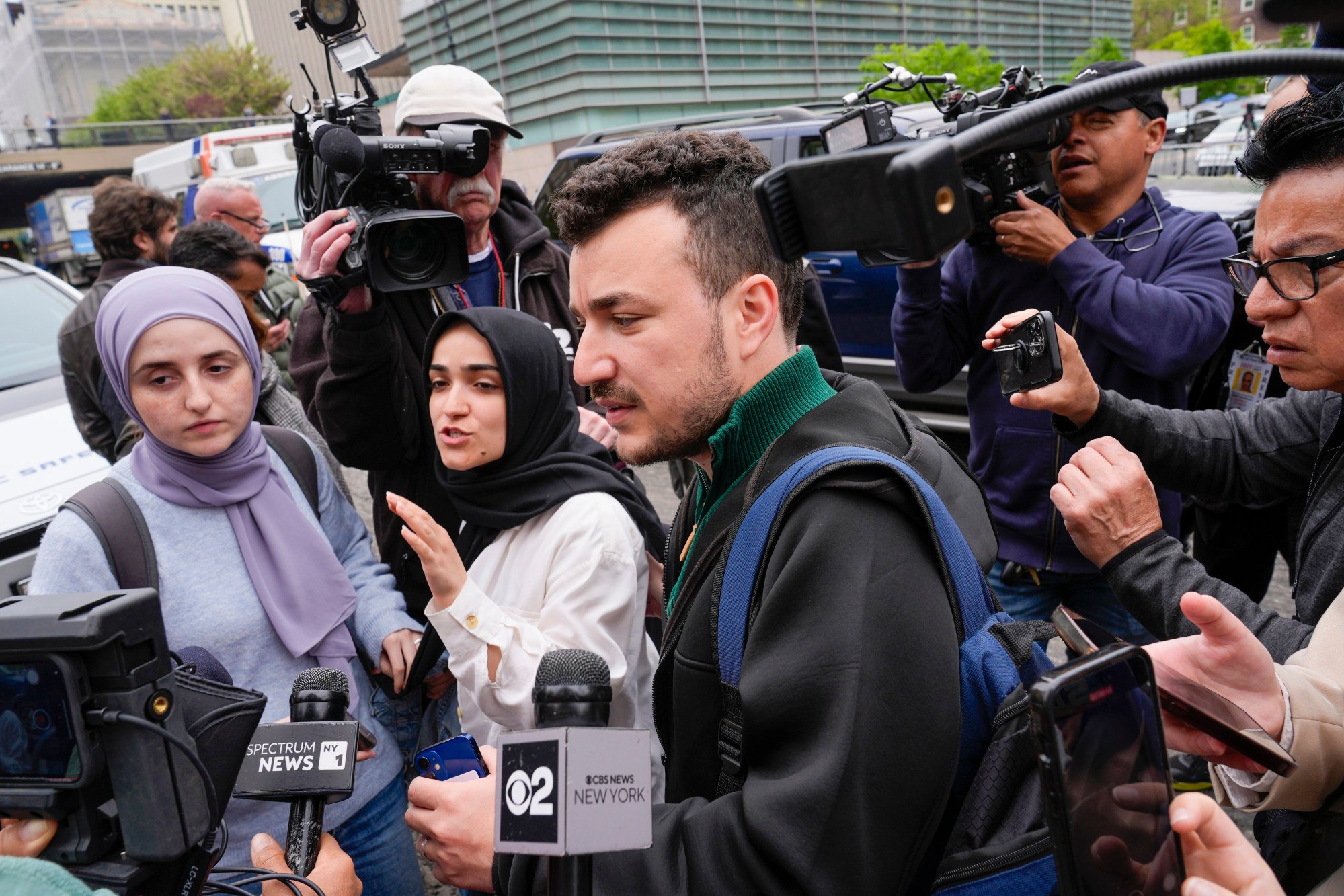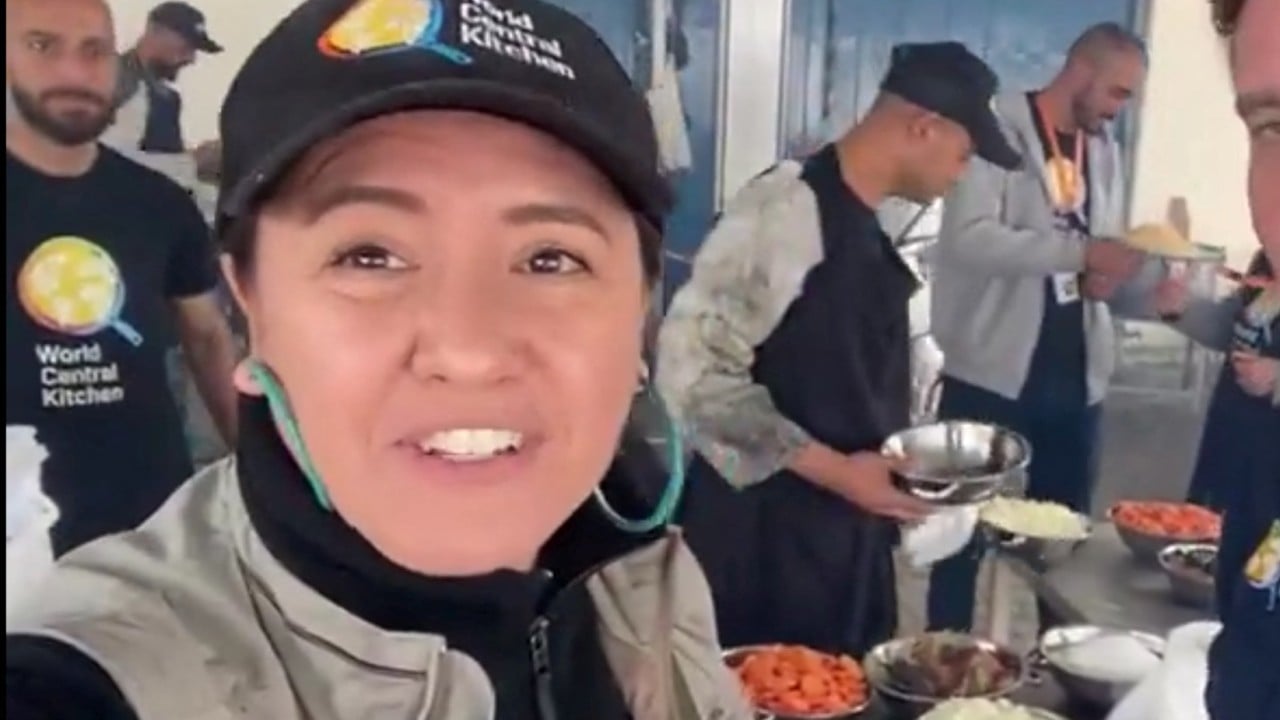
For Chinese at Columbia University, pro-Palestinian protests evoke sympathy and fear
- Decision whether to take part in demonstrations fraught with concerns as ‘it is already precarious to be Chinese in the US in these times’, says one
- While most Chinese students have opted to stay away from the protests, some hope to ‘be a bridge and raise people’s awareness’
“I have to cover my face with scarves even when I donate pillows and bedsheets to the campers,” a Chinese student at Columbia University in New York told the Post this week.
And compared with other international students who have joined the protests roiling the Ivy League school, Lu believed the “risk levels” were different for her as a Chinese student amid heightened Sino-American tensions.
“They would wear sunglasses and masks, but for me I had to do more,” she said of her fellow protesters from abroad.
“It is already precarious to be Chinese in the US in these times.”

Numbering more than 6,800 students and scholars last autumn, Chinese nationals make up the largest international contingent enrolled at Columbia, which has become the focal point of student-led, pro-Palestinian protests sweeping across American universities.
Since April 18, more than 1,000 people, including students and faculty members, have been arrested nationwide. They included two Indian students at Princeton University in New Jersey who were subsequently barred from returning to that campus.
Hundreds of students and some faculty members have continued to camp on Columbia’s campus grounds despite the university administration’s ultimatums, use of police force, academic suspensions and threats of expulsion.
Hamas and Fatah commit to dialogue after China meeting, says foreign ministry
As tensions mounted at Columbia, most Chinese students have chosen to stay away from the on-campus demonstrations. However, they have not been completely absent.
Citing how protesting students were being “showered” with various disciplinary actions, she said: “I can only imagine it to be worse for non-American students, especially people from my country.”
Earlier this month, the Chinese embassy in Washington reported that more 70 Chinese students had been deported from American airports since July 2021, with at least 10 cases transpiring since last November.

In March, the magazine Science reported that more than a dozen Chinese students in the past three months had been denied “re-entry after visiting family in China” and were “immediately sent back home” from the US.
The magazine, published by the American Association for the Advancement of Science, described the deported students as the “latest pawns amid the rising political tensions between the two countries”.
As Beijing and Washington engage in fierce geopolitical competition, anti-China sentiment in the US has ramped up as well, leaving many Chinese nationals targets of harassment and suspicion.
A Columbia philosophy student from China who asked to be called “Gian” pointed to some Republican lawmakers calling for US student visas to be revoked as a primary reason why many Chinese students hesitated to get involved in the current protests.
Around two-thirds of Gaza destroyed by Israel’s siege, Chinese satellites note
In October, 19 Republican lawmakers sent a letter to Secretary of Homeland Security Alejandro Mayorkas and Secretary of State Antony Blinken urging that foreign students who voice support for Hamas have their visas revoked and be deported from the US.
“I am not taking part because of the fear of retribution, but also because I prefer to be an observer rather than a participant,” said Gian, 25, of the Columbia protests.
Another consideration among Chinese students is Beijing’s firm stance against social unrest, he added, suggesting that China would not “publicly condemn the US” over students who might lose their visas over protest involvement.
Despite the risks, a few Chinese students still decided to take part in protesting, inspired to speak out about a situation they feel is not right.
Last week, a Chinese student spoke with The Poorlitzer Show, a YouTube channel set up by a group of Chinese journalists associated with Columbia Journalism School. In the interview, reposted on Chinese video-sharing platform Bilibili, he said he was visiting campus encampments daily to show support.
“I haven’t seen many East Asians in the encampment,” said the unnamed student, speaking from one of the sites. “I am the only one.”
The student said he was not always “this fearless”, but the sight of “crying Palestinians” trying to find their loved ones amid collapsed houses and rubble meant it became difficult to remain silent.
It was unfortunate that not a lot of people were aware of China’s supportive position towards the Palestinian people, he said. “I hope that as a Chinese person, I can be a bridge and raise people’s awareness”.
Netanyahu vows to invade Rafah ‘with or without’ Gaza truce as talks continue
Many Chinese internet users have commented on the Bilibili video in recent days, calling the young student featured “brave”. Some advised him to “exercise restraint” and “stay safe”, while others described the protests as an internal American issue.
One US-based commenter on the Bilibili video said: “I support everyone in solidarity with Palestine, but my family and friends told me not to go out and [to] pay attention to my own safety”.

On October 7, Hamas-led militants crossed from Israel-administered Gaza into Israel and killed 1,200 Israelis and took roughly 240 others hostage, according to Israeli authorities. In response, Israel initiated a military campaign against Hamas in Gaza.
According to Gaza’s health ministry, Israel’s military actions have resulted in the deaths of at least 34,000 Palestinians, predominantly women and children.
China seeks greater global diplomatic role but avoids Middle East, analysts say
Protesters at American universities have demanded that educational institutions divest from companies that benefit from or endorse the conflict in Gaza.
However, several American politicians – including House Speaker Mike Johnson, Republican of Louisiana – have condemned the protest movement as anti-Semitic.
The simmering months-long debate over the war intensified across US campuses after Columbia administrators asked police to forcibly dismantle a student encampment on April 18. That sparked similar protests and crackdowns across the country.


